Last updated on December 1st, 2023
Period Stigma Affects Women and Girls* Around the World
By Carolyn Ray, Editor, JourneyWoman
In many countries, the stigma associated with menstrual limits women and girls from education and career opportunities. This is an area that is never (or rarely) talked about in travel, yet I found that many of us have experienced it in our travels. Marillee Carroll, a member of our Women’s Advisory Committee, learned first-hand about the issue from a group of women while visiting Kenya, where girls are staying home and missing school due to the lack of sanitary products.
Sunday, 28 May, is Menstrual Hygiene Day (MH Day), the annual global day of awareness and action to create a world where no one is held back because they menstruate. World MH Day was chosen to be on the 28th day of the 5th month in the year, as it represents the 5 flow days in a 28-day menstrual cycle. According to WASH United, the NGO that leads MH Day, 500 million women and girls worldwide don’t have what they need to manage their periods safely, hygienically and without shame. This is due to a combination of lack of access to period products, lack of education about menstruation and inadequate water and sanitation infrastructure. The persisting taboos and stigma around menstruation are the root cause that underpins all these issues. If we can’t talk openly about periods, we can’t effectively address these challenges.
Menstruation-related challenges have a severe negative impact on the health, educational and income-earning opportunities, and the overall social status of women and girls. In turn, this affects families, communities and entire countries.
In 2021, JourneyWoman readers raised over $2500 in support of my October 2021 Camino de Santiago Walk for The Period Purse, a non-profit registered charity that strives to achieve menstrual equity and reduce the stigma surrounding periods. By bringing period products when we travel, you can help empower women who may not have access to these products. The Period Purse CEO Jana Girdauskas recommends Joni tampons and pads – they’re biodegradable and sustainable.
Regardless of where we are in the world, this an issue that affect all women. The average woman has her period for 2,535 days of her life. That’s nearly seven years’ time of making sure you have a pad or tampon, finding a makeshift solution if you don’t, and managing pain and discomfort. (Source: The New York Times).
* Women and girls: Not everyone who menstruates identifies as a woman and that not all women menstruate
“Menstruation is intrinsically related to human dignity – when people cannot access safe bathing facilities and safe and effective means of managing their menstrual hygiene, they are not able to manage their menstruation with dignity. Gender inequality, extreme poverty, humanitarian crises and harmful traditions can all turn menstruation into a time of deprivation and stigma, which can undermine womens’ fundamental human rights. This is true for women and girls, as well as for transgender men and nonbinary persons who menstruate.” (Source: United Nations Population Fund).
Facts about Period Inequity
Period poverty is an issue in Canada and thr US, too.
Did you know that:
- In the US, 1 in 4 students who menstruate experienced period poverty in 2021 (up from 1 in 5 in 2019).
- 70% of menstruators have missed work, school or social activities because of their period (Plan Canada, 2018)
- One-third of all Canadian women under the age of 25 experienced “period poverty” meaning they either struggle to afford menstrual products or can’t access them at all (this includes menstruators with full time steady jobs) (Plan Canada, 2018)
- During COVID, 1 in 7 young people with periods have struggled to get period products (Always & Plan Canada, 2021).
- Nearly 1 in 4 young people don’t know why people get periods or how to manage them, and over 1 in 3 young people don’t feel prepared for their first period (Always & Plan Canada, 2021).
Other resources:
World Bank
Alliance for Period Supplies
Progress on Period Inequity is being made
Meghan Markle advocates for ending the stigma around periods worldwide and providing access to proper sanitation to communities where girls’ periods are preventing them from getting an education. Former First Lady Michelle Obama also called attention to this subject at the World Bank in April 2016.
In 2019, an Oscar was awarded to the Los Angeles documentary filmmakers who created a short film centered around menstruation taboo in rural India, called Period. End of Sentence. Countries are paying attention too: Scotland recently became the first country in the world to offer free period products to students at all levels of education in an effort to end period stigma.
In April 2023, the Indian Supreme Court asked the federal government to create a national policy for managing menstrual hygiene for girls in schools³. Period products are now available for free in schools in countries such as New Zealand4 and Zambia and in several US states5 and provinces in Canada. Also in Canada, period products will be free for all employees in federally regulated workplaces by the end of 20236. In February 2023, Spain approved a bill enabling workers to take sick leave if they experience severe menstrual pain7. While the Spanish example is the first in Europe, Japan, Indonesia and several other Asian countries have had similar policies in place for some time8. In Zimbabwe, menstrual hygiene management education will soon become a part of school curricula. In France, women under 25 years old will be eligible to get the cost of period products reimbursed from 2024 onwards9. (source MH Day)
Watch our September 2021 Community Call with The Period Purse
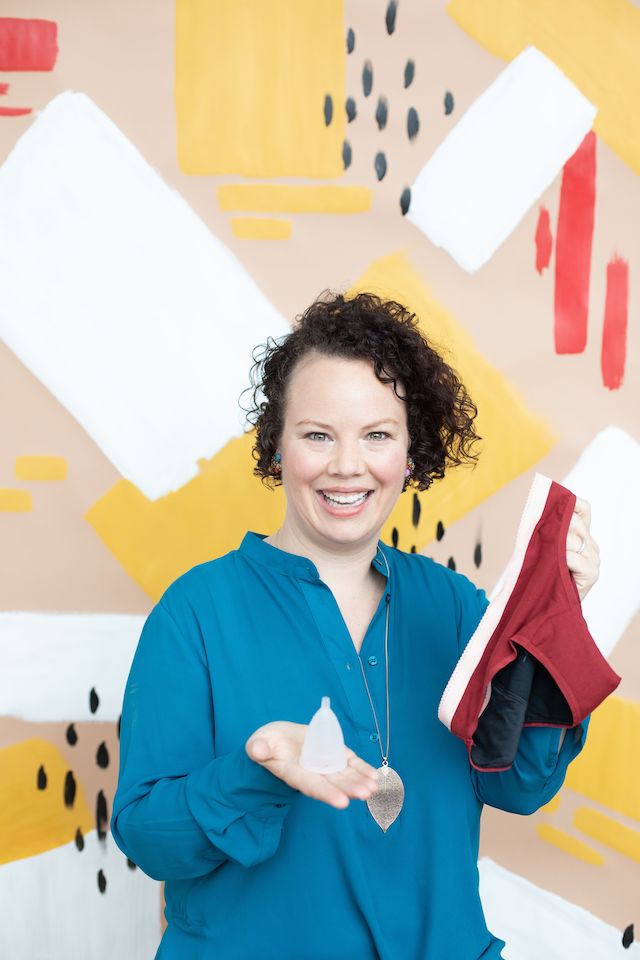
CEO of Period Purse Jana Girdauskas
About The Period Purse
The CEO of The Period Purse, Jana Girdauskas, has travelled solo to over 45 countries – she’s a teacher and a JourneyWoman! Jana started this organization in 2017 after witnessing people experiencing homelessness and organizing a fundraising blitz to help everyone maintain their dignity. That blitz grew into a national non-profit that now helps over 100,000 people have healthy periods.
She says “It is important for all girls, women, and people who menstruate to have access to clean and free period products in all countries, including Canada. Seventy per cent of menstruators have missed work, school or social activities because of their period. It is critical for all people who menstruate to be able to go to school, go to work, take that job interview so they are successful parts of our society.”
The Period Purse is a non-profit registered charity that strives to achieve menstrual equity and reduce the stigma surrounding periods. The organization works with community partners, local volunteers and committed donors to deliver menstrual products to people in need. TPP outreach collects financial & in-kind donations for period products across our Canada chapters. They have donated over 2.5 million period products. TPP education runs virtual presentations to educate the next generation about menstruation and reduce the stigma of periods. TPP continues to advocate for policy changes for long lasting menstrual equity. For more information visit www.theperiodpurse.com or follow them on social media @theperiodpurse.
Look for organizations in your community that support period equity. Days for Girls Canada is a non-profit organization that sews and distributes sustainable menstrual kits to girls, women & menstruators worldwide.
Please recommend others in the comments below.
Health + Wellness
Alcohol-Free Travel: A Different (and Healthier) Kind of Journey
With the growth of de-alcoholized beers, mocktails and sparkling wine, there’s never been a better to time to try alcohol-free travel.
Menopause Travel Packing List for Women Over 50
Our needs change during menopause; these women-recommended products will help women stay cool and comfortable during travel.
Good Vibrations: The Magical Item Post-Menopausal Women Should Pack in Your Personal Wellness Kit
Research suggests that personal massagers can provide relief from some post-menopausal symptoms – so why not travel with one?

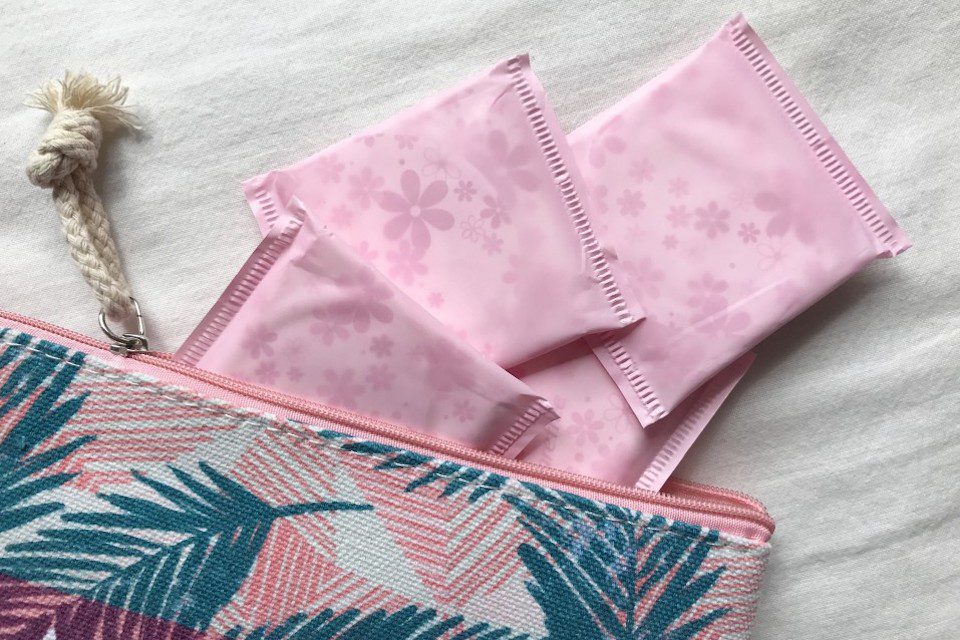

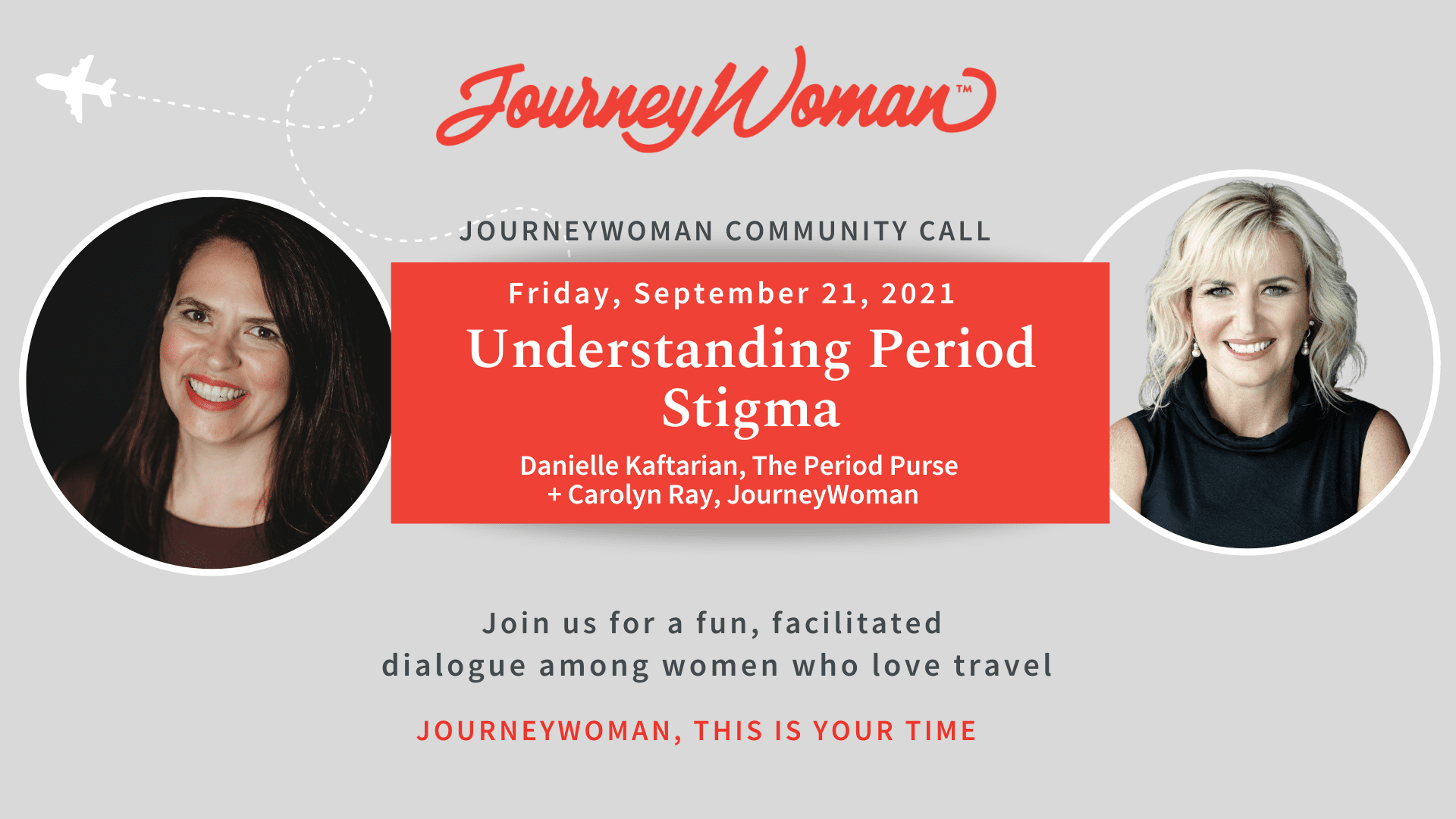
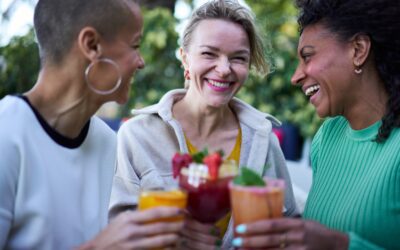
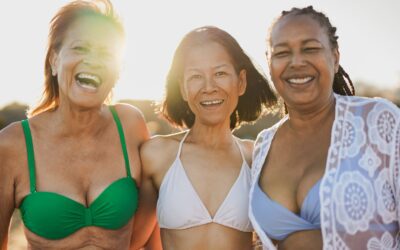
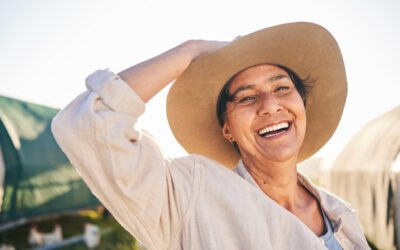
0 Comments
We always strive to use real photos from our own adventures, provided by the guest writer or from our personal travels. However, in some cases, due to photo quality, we must use stock photography. If you have any questions about the photography please let us know.
Disclaimer: We are so happy that you are checking out this page right now! We only recommend things that are suggested by our community, or through our own experience, that we believe will be helpful and practical for you. Some of our pages contain links, which means we’re part of an affiliate program for the product being mentioned. Should you decide to purchase a product using a link from on our site, JourneyWoman may earn a small commission from the retailer, which helps us maintain our beautiful website. JourneyWoman is an Amazon Associate and earns from qualifying purchases. Thank you!
We want to hear what you think about this article, and we welcome any updates or changes to improve it. You can comment below, or send an email to us at [email protected].